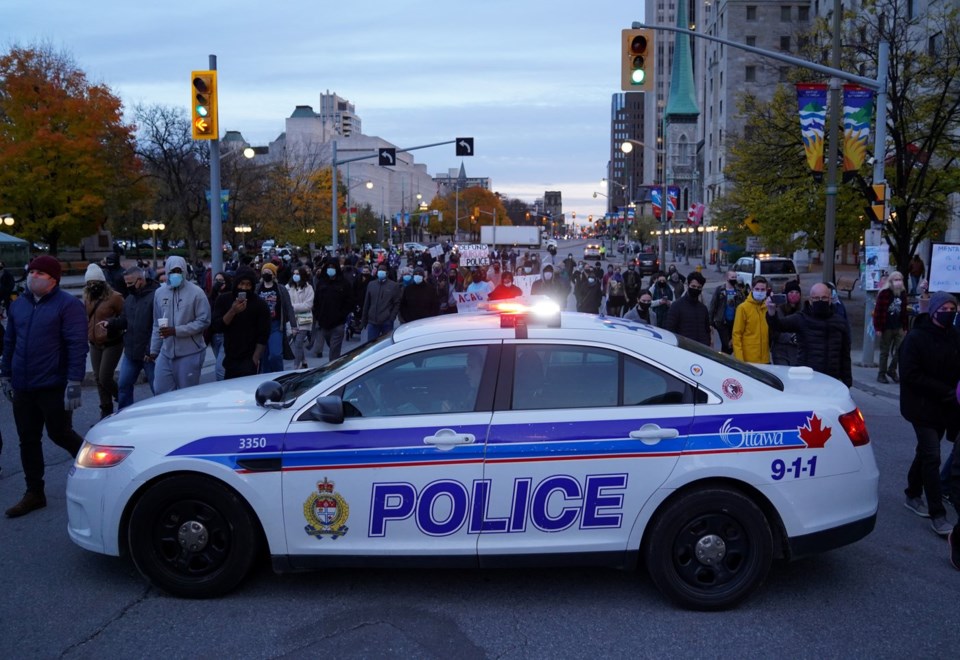A police officer who was found not guilty of manslaughter in the 2016 death of an Ottawa man told a coroner's inquest his goal was to "distract" Abdirahman Abdi with punches during the arrest, and he "did his best" to monitor him afterwards.
The inquest into Abdi's death marks the first time Ottawa police Const. Daniel Montsion has spoken publicly about the case.
The 38-year-old Abdi died in July 2016 after police responded to a 911 call reporting that a man was groping women outside a coffee shop in Ottawa's Hintonburg neighbourhood. The inquest has heard that Abdi appeared to be in a mental-health crisis at the time.
Montsion was charged in the case with manslaughter, aggravated assault and assault with a weapon and was found not guilty in 2020.
During cross-examination at the inquest on Friday, a lawyer for Abdi's family showed clips of the arrest video and questioned Montsion about the punches he threw at the Somali Canadian man.
"You throw a punch at his head with the handcuffs in your right hand," Tina Hill said.
Montsion disputed that.
The punches he did throw, including one that broke Abdi's nose, served a purpose, he added.
"My goal was to distract him with those punches," Montsion said, adding that he was trying to control Abdi before taking him into custody.
Montsion was questioned extensively about Ottawa police policies regarding the use of force and the training he received on that front.
"Somebody's mental-health issues when determining level of force used is not something that's weighed," he said. "Force is used based on somebody's behaviour."
The police officer also said he was sorry for Abdi's family's loss.
The inquest heard Montsion wore special gloves with plastic covering on the knuckles during Abdi's arrest, intended to prevent hand injuries to officers.
The gloves were given to members of the force's Direct Action Response Team, Montsion said, but he was not given training or guidance on how to use them.
Montsion said he used the gloves after previously breaking his hand during an arrest. But he pushed back against suggestions the gloves were dangerous or caused more injuries to people being arrested.
"I received no guidance, but I don't think they caused more damage," he said, adding that he had "punched many people" with the gloves on.
The police officer said he believed he properly monitored Abdi after handcuffing him.
"The longer we waited, the more chaotic the scene became," he told the inquest. "I tried my best. … I don't think I could've done much more than that."
The volatility of the situation made it harder to focus on Abdi's health, Montsion said, and harder to identify the man's family at the scene.
"People were swearing at us, accused us of having killed him, screaming 'police brutality,'" he said of the onlookers.
Inquest proceedings wrapped early on Friday after the jury was shown cellphone footage taken from an apartment overlooking the scene while Abdi lay bleeding on the ground.
One jury member's voice cracked with emotion as they asked for a break to process the video. The decision to end the day early was supported by multiple lawyers who called the video "traumatizing."
The inquest, set to last four weeks, is mandated by law because Abdi was injured while in police custody. The jury is not tasked with determining legal responsibility but it can make recommendations to avoid similar deaths in the future.
This report by The Canadian Press was first published Nov. 22, 2024.
Nick Wells, The Canadian Press



